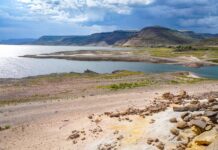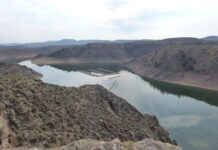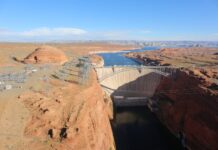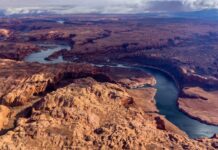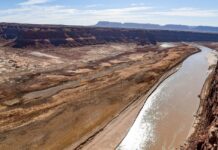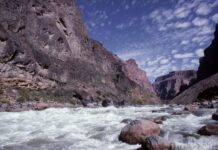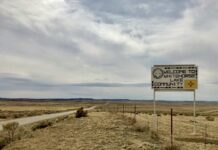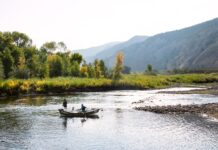West Slope water officials sound alarm on climate change, shrinking water supplies
Colorado West Slope water officials turned up the volume on the call for action around water and climate change, calling it a “train wreck.”
Blue Mesa Reservoir releases to prop up Lake Powell impacting recreation
In an effort to prop up water levels at Lake Powell, water managers are negatively impacting recreation on Colorado’s biggest man-made lake.
Electric costs in Colorado set to surge as Lake Powell struggles to produce hydropower
A federal agency aims to offset rising costs linked to Lake Powell’s inability to produce as much hydropower due to drought.
A “gut punch” as water rushes from Flaming Gorge to save Lake Powell’s hydropower...
The drought hit crisis proportions this summer, pushing lakes Powell and Mead to historic lows and triggering emergency releases.
Demand management discussions continue amid worsening Colorado River crisis
The crisis on the Colorado River is not waiting for the state of Colorado to develop a program to avoid water shortages.
Western governors ask feds to expand state partnerships to address wildfires, climate change
Western governors say it's time to help states recover from wildfires, thin overgrown forests and protect mountain water systems.
Lake Powell pipeline plans to tap water promised to the Utes. Why the tribe...
The Ute Indian Tribe is suing to get back its water and asserting that the misappropriation is one of a decades-long string of racially motivated schemes to deprive it of its rights and property.
Traveler Special Report: Grand Canyon’s Struggling River
Glen Canyon Dam, climate change and invasive plant species are threatening the Colorado River.
As water reaches eastern Navajo communities, it brings possibilities and homecomings
The Navajo Gallup Water Supply Project, under construction in New Mexico, is testing approaches for improving access to running water.
Homestake Reservoir release proves tricky to track
Front Range water providers released water downstream to test how to get it to the state line in the event of a Colorado River Compact call.



